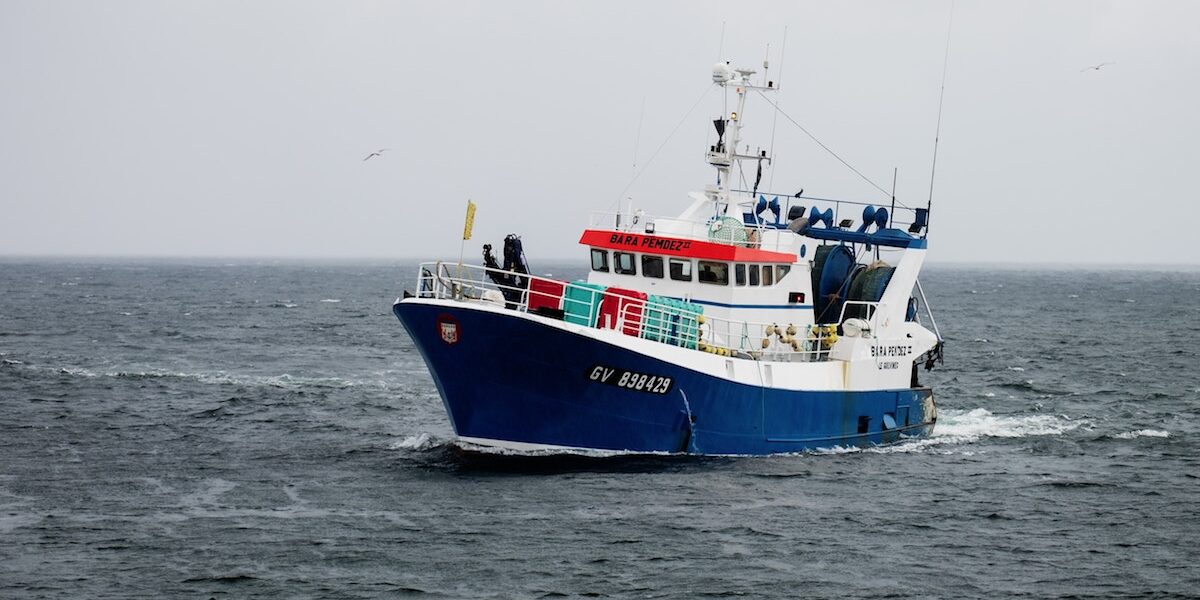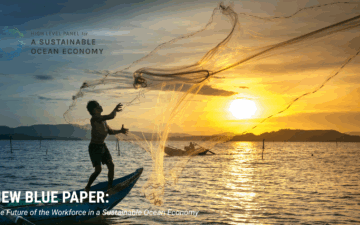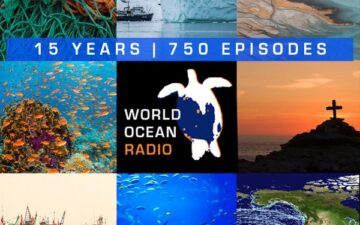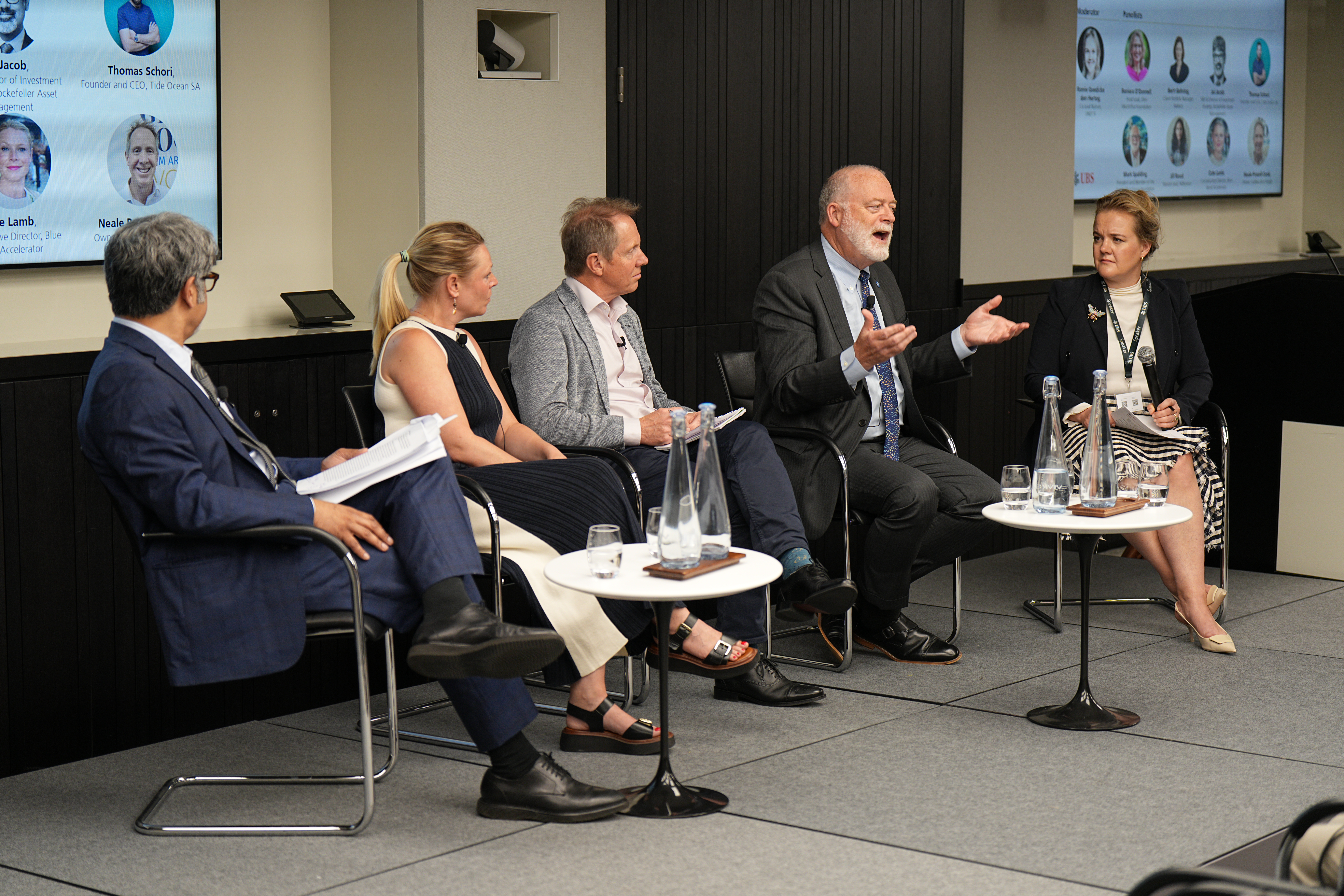by Jessie Neumann, TOF Communications Assistant
HR 774: Illegal, Unreported, and Unregulated (IUU) Fishing Enforcement Act of 2015
This February, Representative Madeleine Bordallo (D-Guam) reintroduced HR Bill 774 to Congress. The bill aims to strengthen enforcement mechanisms to stop illegal, unreported, and unregulated fishing (IUU). The bill was enacted after being signed by President Obama on November 5, 2015.
The Problem
Illegal, unreported and unregulated fishing (IUU) threatens the livelihoods of fisherman across the globe as unregulated vessels deplete fishing stocks and bring harm to marine ecosystems. In addition to depriving law-abiding fisherman and coastal communities of roughly $23 billion worth of seafood annually, vessels engaged in IUU fishing are more likely to be engaged in other trafficking activities including organized crime, drug transportation and human trafficking.
It is estimated there are over 20 million people working under coercive or forced labor conditions across the globe, as for how many are working directly in the fishing industry, that number is nearly impossible to calculate. Human trafficking in fisheries is not a new issue, however the globalization of the seafood industry serves to exacerbate it. The dangerous nature of working on a fishing vessel makes most people unwilling to put their life on the line for such low wages. Migrants are often the only communities desperate enough for these low tier jobs, and as such are increasingly vulnerable to trafficking and abuse. In Thailand, 90% of the seafood-processing workforce is composed of migrant workers from neighboring countries such as Myanmar, Lao PDR and Cambodia. In one study conducted by the organization,FishWise in Thailand, 20% of those interviewed on fishing boats and 9% of those interviewed in processing operations stated they were “forced to work.” In addition, the gradual decline of global fish stocks from overfishing forces vessels to travel further out to sea, to fish in more remote locations and for longer periods of time. There is a low risk of being caught at sea and vessel operators take advantage of this, easily practicing IUU fishing abuses likely with abused workers. There is obvious difficulty in monitoring and enforcing labor standards in a global fishing fleet of roughly 4.32 million vessels, however eliminating IUU fishing will contribute to the fight against human rights abuses committed at sea.
IUU fishing is an international problem, occurring in every major region of the world and there is a serious lack of enforcement tools to monitor it. Information regarding known IUU vessels is rarely shared between the US and foreign governments, making it more difficult to legally identify and punish culprits. Over half of marine fish stocks (57.4%) are fully exploited which means even as certain stocks are legally protected, IUU operations still have a detrimental effect on the ability of certain species to stabilize.
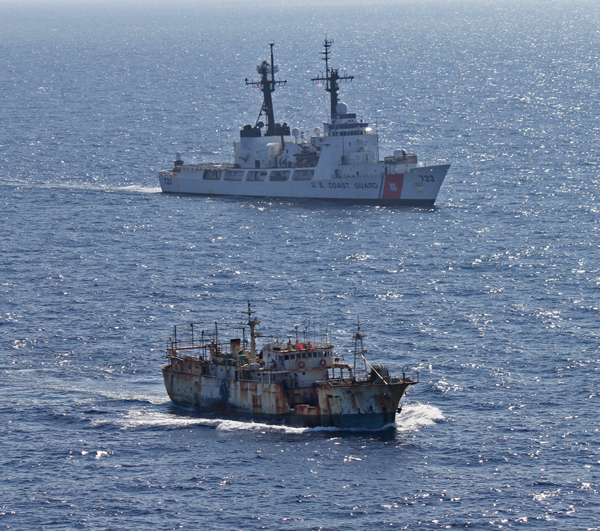 HR 774’s Solution
HR 774’s Solution
“To strengthen enforcement mechanisms to stop illegal, unreported, and unregulated fishing, to amend the Tuna Conventions Act of 1950 to implement the Antigua Convention, and for other purposes.”
HR 774 proposes to toughen the policing of IUU fishing. It will enhance the enforcement authority of the U.S. Coast Guard and of National Oceanic and Atmospheric Administration (NOAA). The bill provides rules and regulations for validating vessel permits, boarding and searching vessels, denying port, etc. It will help to promote a responsible industry and seafood sustainability by eliminating illegal products from seafood supply chains. The bill also aims to increase the logistical capacity for the monitoring of illegal foreign vessels by increasing information sharing with foreign governments. An increase in transparency and traceability will help multiple authorities to identify and penalize nations that do not comply with fishery management regulations. The bill also allows for the development and distribution of a public list of known vessels participating in IUU.
HR 774 amends two international agreements to allow for better implementation of policies and concrete penalties for IUU fishing. The bill calls for the creation of an appointed Scientific Advisory Subcommittee as part of the Antigua Convention of 2003, an agreement signed by the US and Cuba to strengthen the conservation and management of fisheries for tunas and other species taken by tuna-fishing vessels in the eastern Pacific Ocean. HR 774 also establishes civil and criminal penalties for vessels found to be violating the Convention. Lastly, the bill amends the Port State Measures Agreements of 2009 to implement the authority of Coast Guard and NOAA with the power to deny both national and “foreign listed” vessels port entry and services if they engage in IUU fishing.
After being introduced in February 2015, H.R. 774 was passed through the House of Representatives, approved with unanimous consent (a rare occasion) by the Senate, and signed into law by President Obama on Thursday, November 5, 2015.
Photo: The crew of the Coast Guard Cutter Rush escorts the suspected high seas drift net fishing vessel Da Cheng in the North Pacific Ocean on August 14, 2012. Photo Credit: U.S. Coast Guard
All data was pulled from the following sources:
Fishwise. (2014, March). Trafficked II – An Updated Summary of Human Rights Abuses in the Seafood Industry.
